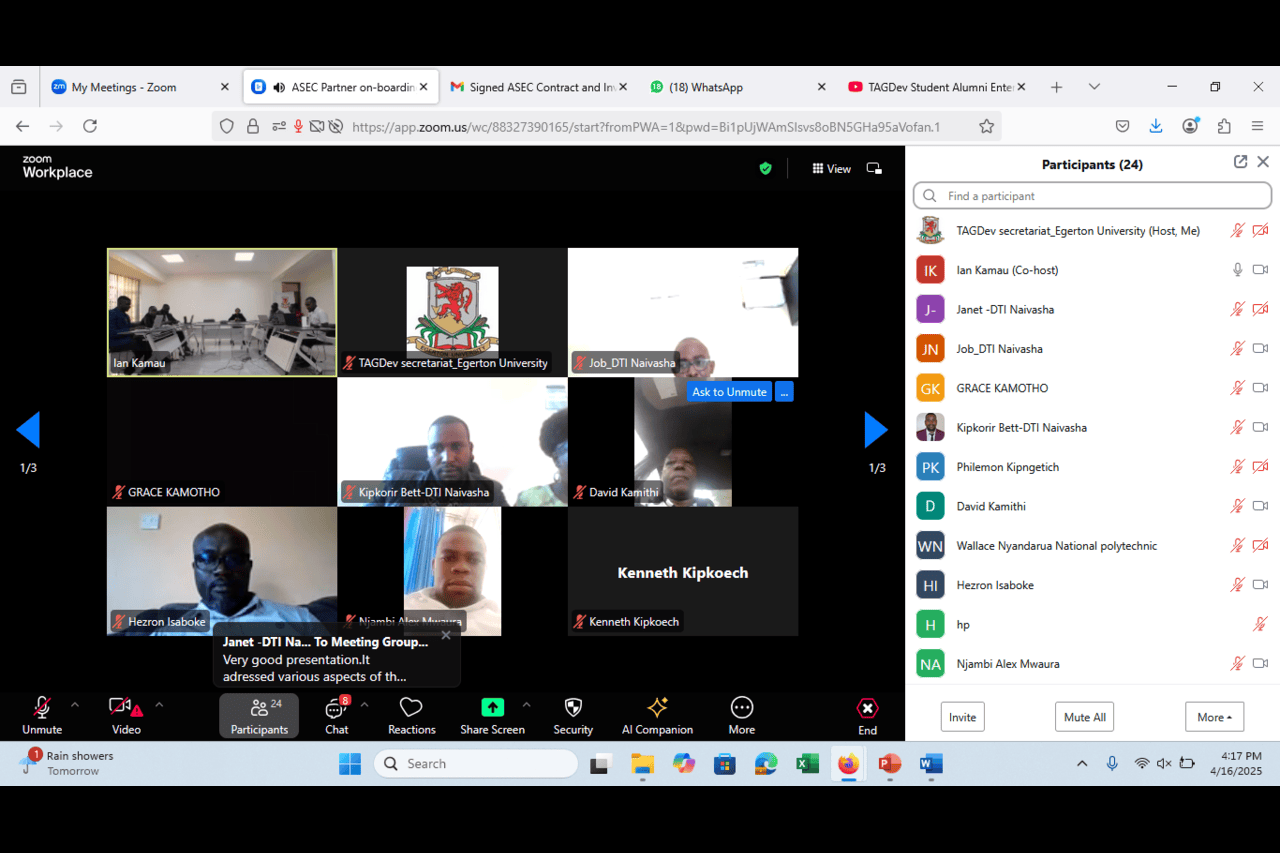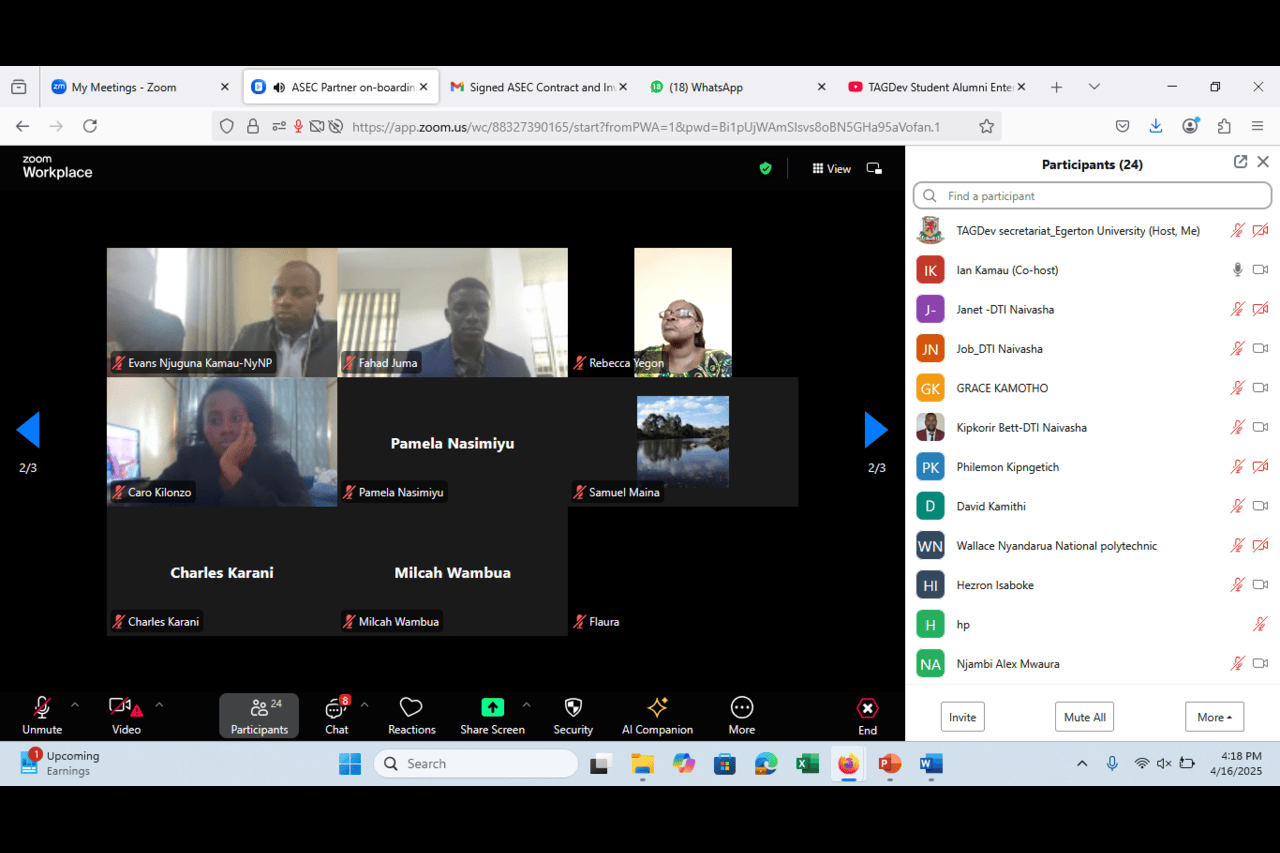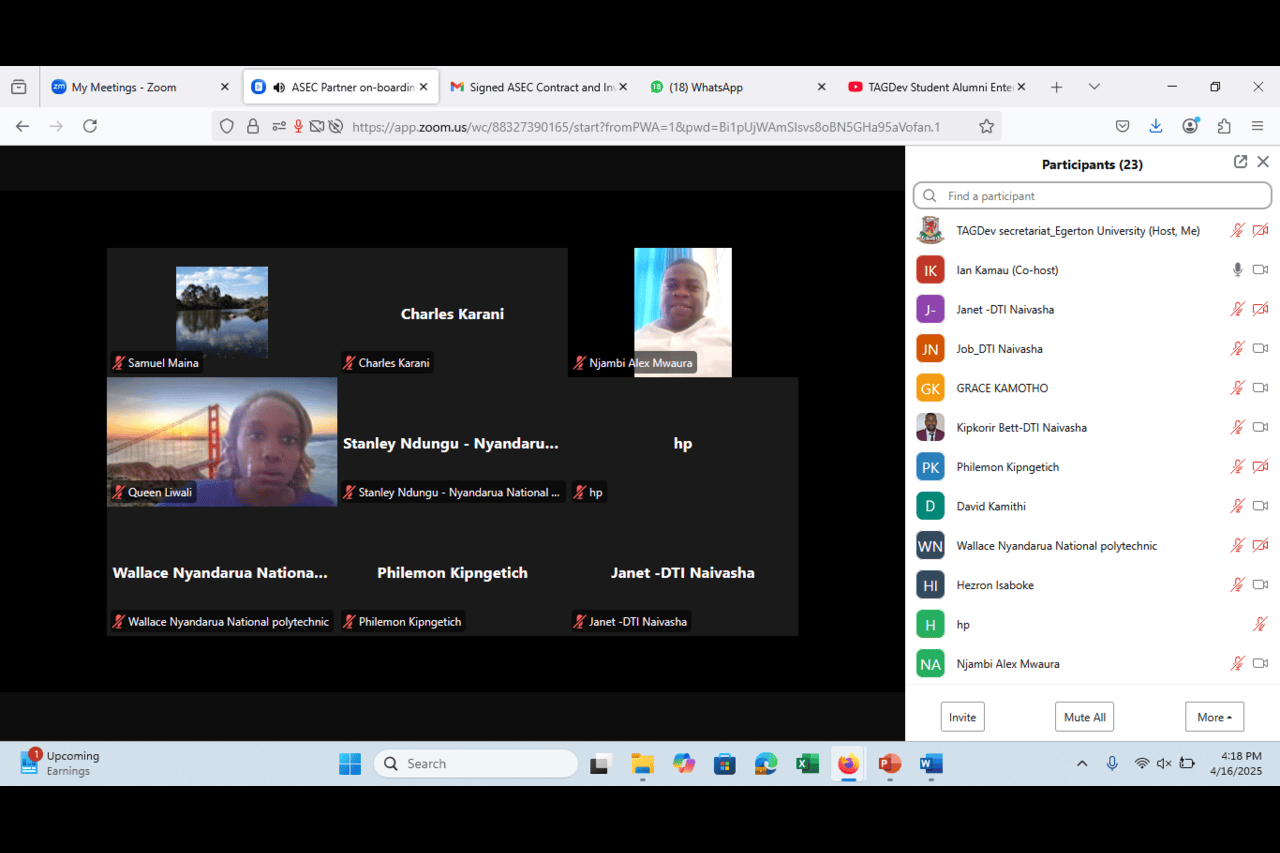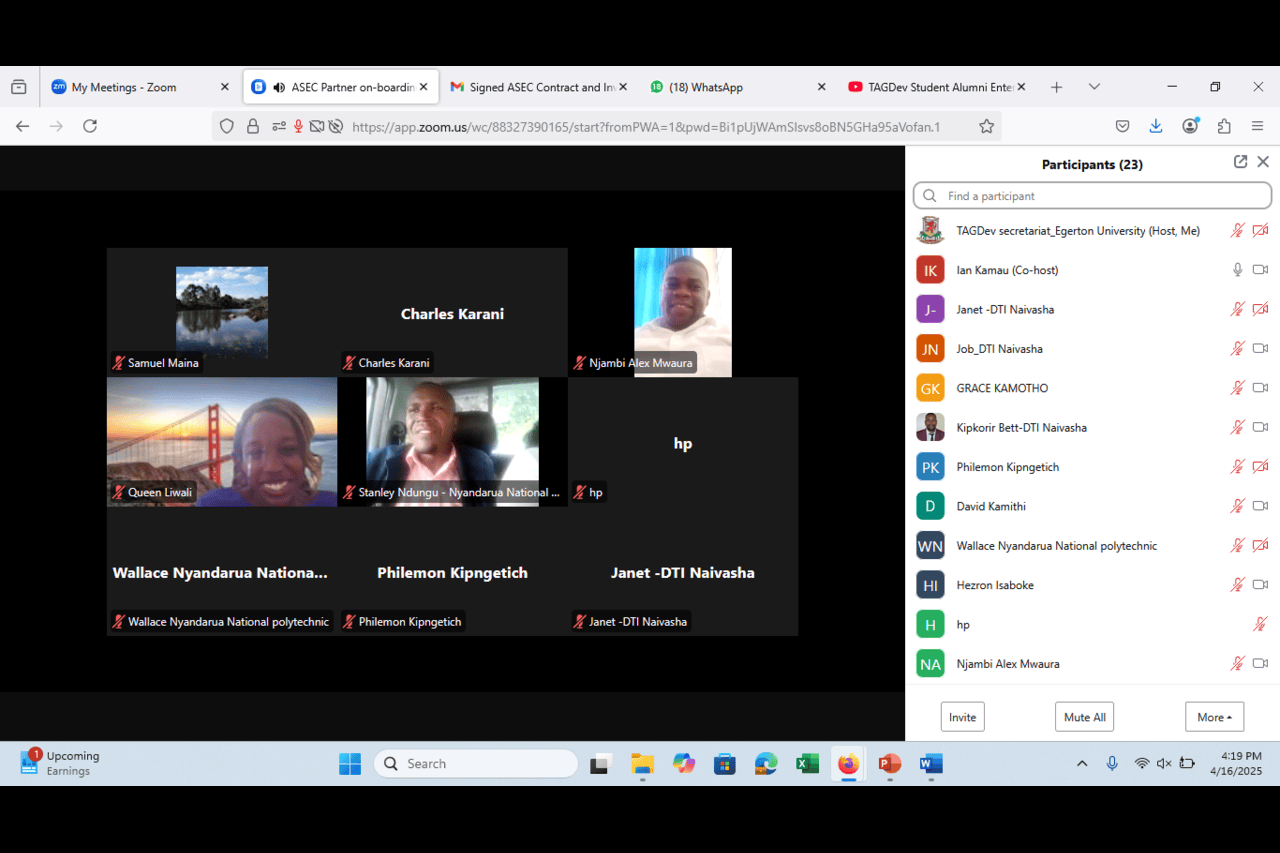On April 16, 2025, Egerton University, through the TAGDev 2.0 Program team, held a successful virtual onboarding session for the Agrifood Systems and Entrepreneurship Consortium (ASEC) Project partners. Led by Program Coordinator Prof. Nancy Mungai, the session marked a key step in laying the groundwork for a collaborative and impactful initiative aimed at transforming agricultural education and boosting youth employment.
The ASEC project, coordinated by Egerton University in partnership with Pwani University, University of Embu, Karatina University, Dairy Training Institute, Nyandarua National Polytechnic, and Baraka Agriculture College, is designed to create job opportunities for young women and men while enhancing the resilience of smallholder farmers. The consortium brings together academic institutions and technical training centers to address critical challenges in Kenya’s agri-food systems.
The onboarding brought together project leads and value chain representatives for a focused session that outlined project implementation strategies and clarified roles and expectations. Key areas covered included gender, inclusion and safeguarding (GIS), Entrepreneurship, communication and branding, monitoring and evaluation, all essential for coherent execution and measurable outcomes.
Virginia Njuguna, the Associate Program Officer, TAGDev 2.0 at Egerton University, outlined the universities and TVETs role in coordinating project activities and ensuring smooth implementation through structured planning and accountability measures. Her focus centered on how Egerton, in collaboration with its partners, has adopted a results-driven approach that ties budgeting to clearly defined deliverables. She also emphasized the value of transparency, partner engagement, and adherence to financial and procurement guidelines as key pillars of effective project management. By highlighting these practices, Virginia emphasized the importance of strong institutional leadership in driving the project’s success. Her presentation demonstrated how thoughtful coordination and proper project management will not only enable the delivery of key outputs but also reinforce the broader goal of empowering young women and men & transforming agricultural systems.
Fahad Juma, the Business Entrepreneurship and Development Officer presented the ASEC Entrepreneurship Framework. This model provides clear pathways for young women and men to engage in agribusiness through capacity building, startup support, and enterprise growth services. It focuses on enabling young women and men to acquire the skills and tools needed to launch and scale agribusiness ventures, with the ultimate goal of reducing youth unemployment. The framework outlines two main outputs: building the entrepreneurial capacity of young people and supporting the expansion of youth-led businesses. It includes structured activities such as training, incubation, and acceleration to nurture innovation and business readiness. This approach aligns well with the project’s broader goal of turning agricultural training into tangible economic opportunities for the youth.
Dr. Atsiaya, GIS Officer, emphasized the importance of integrating gender, safeguarding, and inclusion into all project activities. He called on stakeholders to ensure safe and equitable spaces, especially for women and marginalized groups. This commitment to inclusivity is embedded across the consortium’s operations.
The partners were also taken through the communication and branding guidelines intended to ensure consistency across all ASEC-related outputs. Teams were encouraged to apply these standards in their reports, publications, and digital materials to reinforce a strong, unified project identity.
Additionally, the monitoring and evaluation segment focused on performance tracking, data collection, and timely reporting key elements for accountability and continuous learning . The Monitoring, Evaluation, and Learning (MEL) framework provides a structured approach that ensures activities are not only implemented efficiently but also generate valuable insights for continuous improvement. At the heart of this process is the Theory of Change, which guides strategic decision-making by linking activities to desired outcomes. Kipngetich Chumo Shadrack, the MEL Officer, emphasized, “Data-driven decision-making is not just a tool, it’s the backbone of sustainable impact.” Through consistent tracking systems and evaluations, the ASEC Partners will be able to measure progress, identify gaps, and adapt accordingly, ensuring that the project remain relevant, responsive, and impactful in changing development contexts.
By aligning partners on common objectives and strategic direction, the onboarding session established a strong foundation for the consortium’s success. As implementation gets underway, the ASEC project is positioned to inspire a new generation of agricultural leaders and innovators.




Written By:
Ian Kamau.
Communication Intern, TAGDev 2.0 Program, Egerton University


